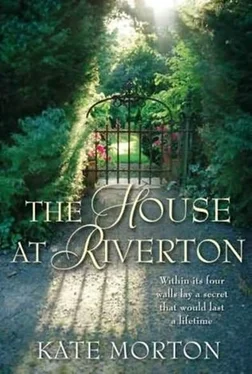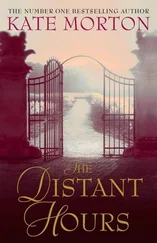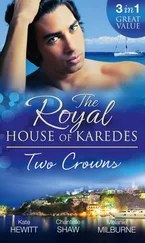But I did wonder about that little baby, Florence. My half-niece, I suppose. She was a pretty little thing. Hannah’s blonde hair but not her eyes. Big, brown eyes, they were. Perhaps they changed as she grew. That can happen. But I suspect they stayed brown, like her father’s. For she was Robbie’s daughter, wasn’t she?
I have given it quite some thought over the years. It is possible, of course, that despite Hannah’s failure to fall pregnant to Teddy all those years, she fell swiftly and unexpectedly in 1924. Stranger things have happened. But at the same time, isn’t it too convenient an explanation? Teddy and Hannah shared a bed infrequently in the latter years of their marriage, but Teddy had been anxious for a child at the beginning. For Hannah not to fall suggests, doesn’t it, that there was a problem with one of them? And as she proved with Florence, Hannah was able to conceive.
Isn’t it more likely then that Florence’s father was not Teddy? That she was conceived on the lake? That after months of being apart, when Hannah and Robbie met that night, in the near-finished summer house, they were unable to resist? The timing, after all, was right. Deborah certainly thought so. She took one look at those big dark eyes and her lips tightened. She knew.
Whether it was she who told Teddy, I don’t know. Perhaps he worked it out for himself. Whatever the case, Florence didn’t stay long at Riverton. Teddy could hardly be expected to keep her: a constant reminder of his cuckolding. The Luxtons all agreed it was best he put the whole sorry affair behind him. Settle down to running Riverton Manor, staging his political comeback.
I heard they sent Florence to America, that Jemima agreed to take her as sister to Gytha. She had always longed for more than one. Hannah would’ve been pleased, I think; would’ve preferred to imagine her daughter growing up a Hartford than a Luxton.
The tour ends and we are delivered to the entrance hall. Despite Beryl’s keen encouragement, Ursula and I bypass the gift shop.
I wait again on the iron seat while Ursula fetches the car. ‘I won’t be long,’ she promises. I tell her not to worry, my memories will keep me company.
‘Come again soon?’ Mr Hamilton says from the doorway.
‘No,’ I say. ‘I don’t think so, Mr Hamilton.’
He seems to understand, smiles briefly. ‘I’ll tell Mrs Townsend you said goodbye.’
I nod and he disappears, dissolves like watercolour into a dusty streak of sunlight.
Ursula helps me into the car. She has bought a bottle of water from a machine in the ticket booth and opens it for me when I am buckled into my seat. ‘Here you are,’ she says, feeding a straw into the spout and wrapping my hands around its cold sides.
She starts the engine and we drive slowly out of the car park. I am aware, vaguely, as we enter the dark leafy tunnel of the driveway, that it’s the last time I will take this particular journey, but I don’t look back.
We drive in silence for a time, until Ursula says, ‘You know, there’s one thing that’s always niggled me.’
‘Mmm?’
‘The Hartford sisters saw him do it, right?’ She sneaks a sideways glance at me. ‘But what were they doing down by the lake when they should have been up at the party?’
I do not answer and she glances at me again, wondering if perhaps I have not heard.
‘What did you decide?’ I say. ‘What happens in the film?’
‘They see him disappear, follow him to the lake and try to stop him.’ She shrugs. ‘I looked everywhere but I couldn’t find police interviews with either Emmeline or Hannah, so I had to sort of guess. It made the most sense.’
I nod.
‘Besides, the producers thought it more suspenseful than if they stumbled on him accidentally.’
I nod.
‘You can judge for yourself,’ she says. ‘When you see the film.’
I had once thought to attend the film’s premiere, but somehow I know it is beyond me now. Ursula seems to know too.
‘I’ll bring you a copy on video as soon as I can,’ she says.
‘I’d like that.’
She turns the car into the Heathview entrance. ‘Uh-oh,’ she says, eyes widening. She places a hand on mine. ‘Ready to face the music?’
Ruth is standing there, waiting. I expect to see her mouth sucked tight around her disapproval. But it isn’t. She is smiling. Fifty years dissolve and I see her as a girl. Before life had a chance to disappoint her. She is holding something; waving it. It is a letter, I realise. And I know who it is from.
He is here. Marcus has come home. In the past week he’s been to see me every day. Sometimes Ruth comes with him; sometimes it’s just the two of us. We don’t always talk. Often he just sits beside me and holds my hand while I doze. I like him to hold my hand. It is the most companionable of gestures: a comfort from infancy to old age.
I am beginning to die. Nobody has told me, but I see it in their faces. The pleasant, soft expressions, the sad, smiling eyes, the kind whispers and glances that pass between them. And I feel it myself.
A quickening.
I am slipping out of time. The demarcations I’ve observed for a lifetime are suddenly meaningless: seconds, minutes, hours, days. Mere words. All I have are moments.
Marcus brings a photograph. He hands it to me and I know before my eyes focus which one it is. It was a favourite of mine, is a favourite of mine, taken on an archaeological dig many years before. ‘Where did you find this?’ I say.
‘I’ve had it with me,’ he says sheepishly, running a hand through longish sun-lightened hair. ‘All the time I was away. I hope you don’t mind.’
‘I’m glad,’ I say.
‘I wanted a photo of you,’ he says. ‘I always loved this one, when I was a kid. You look so happy.’
‘I was. The very happiest.’ I look at the photo some more, then hand it back. He positions it on my bedside table so that I can see it whenever I care to look.
I wake from dozing and Marcus is by the window, looking out over the heath. At first I think Ruth is in the room with us, but she is not. The dark figure by the curtains is someone else. Something else. She appeared a little while ago. Has been here ever since. No one else can see her. She is waiting for me, I know, and I am almost ready. Early this morning I taped the last for Marcus. It is all done now and all said. The promise I made is broken and he will learn my secret.
Marcus senses I have woken. He turns. Smiles. His glorious broad smile. ‘Grace.’ He comes away from the window, stands by me. ‘Would you like something? A glass of water?’
‘Yes,’ I say.
I watch him: his lean shape housed in loose clothing. Jeans and a T-shirt, the uniform of today’s youth. In his face I see the boy he was, the child who followed me from room to room, asking questions, demanding stories: about the places I’d been, the artefacts I’d unearthed, the big old house on the hill and the children with their game. I see the young man who delighted me when he said he wanted to be a writer. Asked me to read some of his work, tell him what I thought. I see the grown man, caught in grief’s web, helpless. Unwilling to be helped.
I shift slightly, clear my throat. There is something I need to ask him. ‘Marcus,’ I say.
He looks sideways from beneath a lock of brown hair. ‘Grace?’
I study his eyes, hoping, I suppose, for the truth. ‘How are you?’
To his credit he doesn’t dismiss me. He sits, props me against my pillows, smooths my hair and hands me a cup of water. ‘I think I’m going to be all right,’ he says.
There is so much I would like to say, to reassure him. But I am too weak. Too tired. I can only nod my head.
Читать дальше












